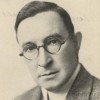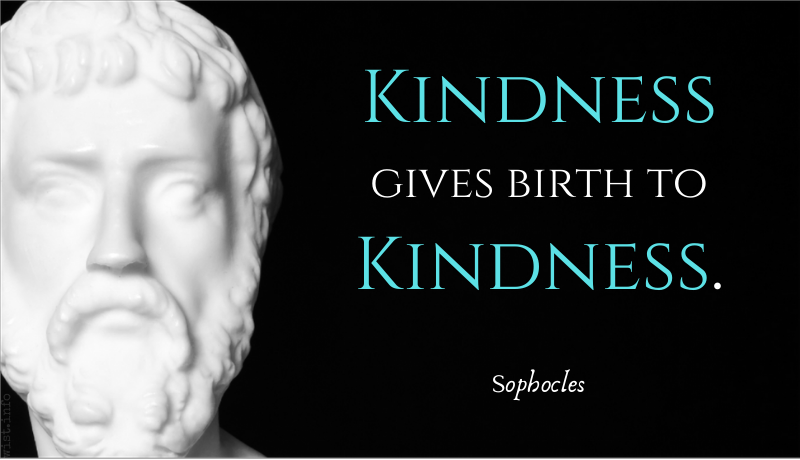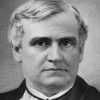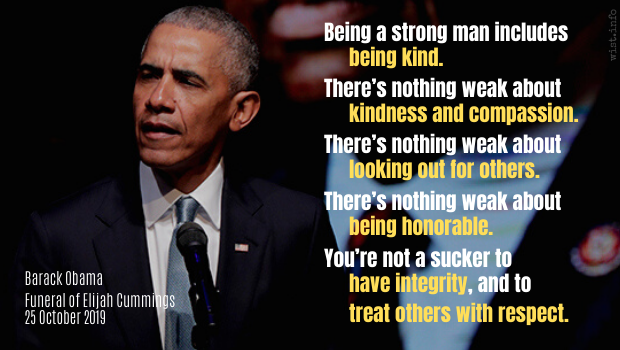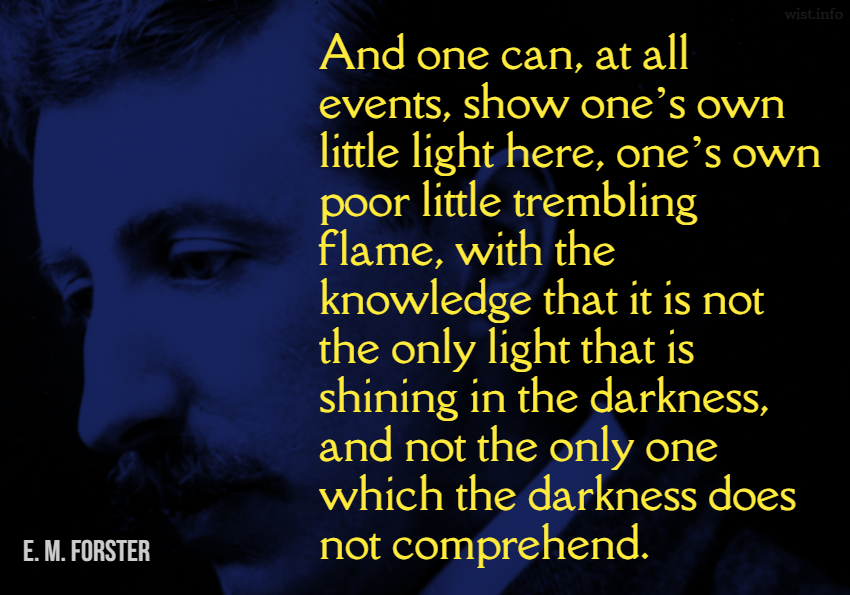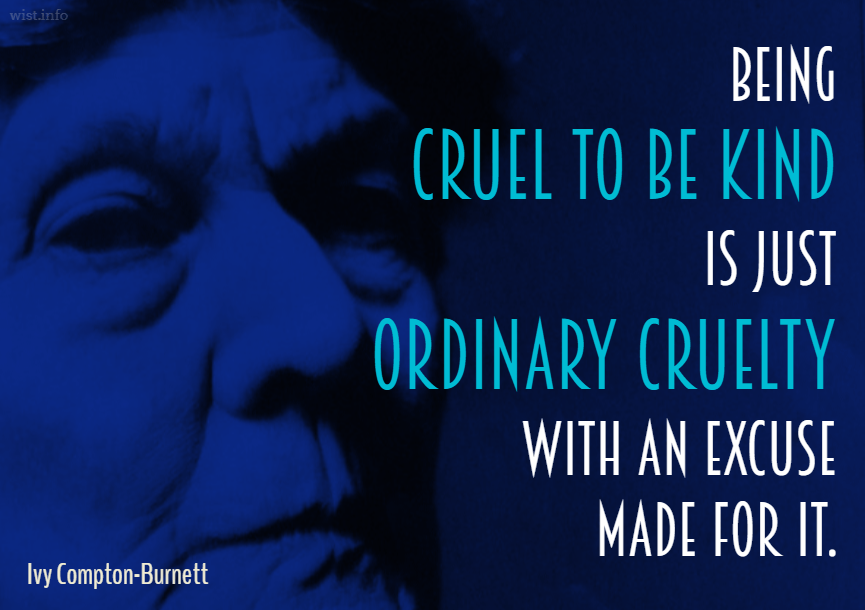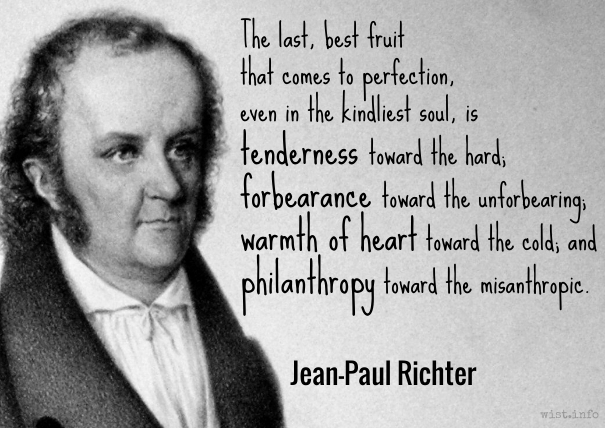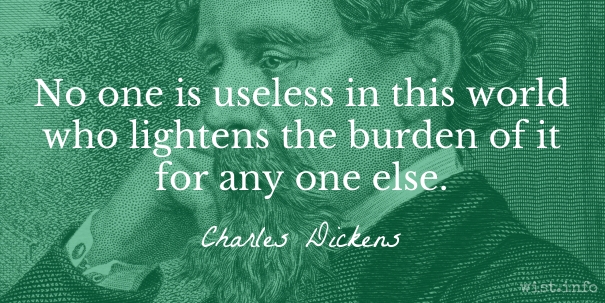Incline us oh God! to think humbly of ourselves, to be severe only in the examination of our own conduct, to consider our fellow-creatures with kindness, and to judge of all they say and do with that charity which we would desire from them ourselves.
Jane Austen (1775-1817) English author
Prayer 3 “Another Day Now Gone”
(Source)
On e of three surviving prayers Austen wrote. More discussion: Exploring Jane Austen’s Prayers | Jane Austen's World.
Quotations about:
kindness
Note not all quotations have been tagged, so Search may find additional quotes on this topic.
Love should be the vestal fire of some mighty temple — some vast dim fane whose organ music is the rolling of the spheres. Affection will burn cheerily when the white flame of love is flickered out. Affection is a fire that can be fed from day to day, and be piled up ever higher as the winter years draw nigh. Old men and women can sit by it with their thin hands clasped, the little children can nestle down in front, the friend and neighbour has his welcome corner by its side, and even shaggy Fido and sleek Titty can toast their noses at the bars.
Let us heap the coals of kindness upon that fire. Throw on your pleasant words, your gentle pressures of the hand, your thoughtful and unselfish deeds. Fan it with good humour, patience, and forbearance. You can let the wind blow and the rain fall unheeded then, for your hearth will be warm and bright, and the faces round it will make sunshine in spite of the clouds without.Jerome K. Jerome (1859-1927) English writer, humorist [Jerome Klapka Jerome]
Idle Thoughts of an Idle Fellow, “On Being in Love” (1886)
(Source)
It is the head that governs men. A kind heart is of no use in a chess game.
[On gouverne les hommes avec la tête. On ne joue pas aux échecs avec un bon cœur.]
Nicolas Chamfort (1741-1794) French writer, epigrammist (b. Nicolas-Sébastien Roch)
Products of Perfected Civilization [Produits de la Civilisation Perfectionée], Part 1 “Maxims and Thoughts [Maximes et Pensées],” ch. 8, ¶ 522 (1795) [tr. Merwin (1969)]
(Source)
(Source (French)). Alternate translations:
People are governed with the head; kindness of heart is little use in chess.
[tr. Mathers (1926)]
Men are governed using the head. A kind heart is useless in a chess game.
[tr. Dusinberre (1992)]
A person governs men with his head. One does not play chess with goodness of heart.
[tr. Siniscalchi (1994), ¶ 521]
I hope you will have a wonderful year, that you’ll dream dangerously and outrageously, that you’ll make something that didn’t exist before you made it, that you will be loved and that you will be liked, and that you will have people to love and to like in return. And, most importantly (because I think there should be more kindness and more wisdom in the world right now), that you will, when you need to be, be wise, and that you will always be kind.
Neil Gaiman (b. 1960) British author, screenwriter, fabulist
Blog entry (2008-12-31), “Another Year”
(Source)
For all you can hold in your cold dead hand
Is what you have given away.Joaquin Miller (1837-1913) American poet [pen name of Cincinnatus Heine (or Hiner) Miller]
“Peter Cooper (Died 1883),” ll. 11-12, In Classic Shades and Other Poems (1890)
(Source)
This phrasing of the sentiment seems to have been made by Miller, but the sentiment itself predates him in various ways. See, for example, Martial, Epigram 5.42 (AD 90): "You keep thus always what you gave."
Edward Gibbon, in his Decline and Fall of the Roman Empire,, ch. 61 (1776), notes the epitaph of 15th Century Earl Edward Courtenay of Devonshire:
What we gave, we have;
What we spent, we had;
What we left, we lost.
Miller was himself quoted by Edwin M. Poteat, President of Furman University, in his poem "What You Have Given Away" (1909). Poteat put the phrase in quotation marks, but is sometimes still given full credit.
Elbert Hubbard may have been borrowing from Miller in his Little Journeys to the Homes of the Great, Vol. 12 "Great Scientists," "Haeckel" (collected in 1916, but published earlier), where he writes:
We keep things by giving them to others. The dead carry in their clenched hands only that which they have given away; and the living carry only the love in their hearts which they have bestowed on others.
Finally, often in the variant form "All we can hold in our cold dead hands is what we have given away," the phrase is today often identified as a Sanskrit proverb. The universality of thought means it may well have an ancient Indian inspiration, but the language may indicate a tie to Miller's poem, as promulgated. The "Sanscrit proverb" appears as such in Hoyt's New Cyclopedia of Practical Quotations (1922), but not in the 1896 edition. This may be taken from a letter to the editor, New York Times (1908-07-25) by Emily Noble, identifying this as the translation of a Sanskrit proverb.
Thy Godlike crime was to be kind,
To render with thy precepts less
The sum of human wretchedness,
And strengthen Man with his own mind.
Tact is not one thing only. It is a number of qualities working together: insight into the nature of men, sympathy, self-control, a knack of inducing self-control in others, avoidance of human blundering, readiness to give the immediate situation an understanding mind and a second thought. Tact is not only kindness, but kindness skillfully extended.
He shall come to know
Dionysus, son of Zeus, consummate god,
most terrible, and yet most gentle, to mankind.[γνώσεται δὲ τὸν Διὸς
Διόνυσον, ὃς πέφυκεν ἐν τέλει θεός,
δεινότατος, ἀνθρώποισι δ᾽ ἠπιώτατος.]Euripides (485?-406? BC) Greek tragic dramatist
Bacchæ [Βάκχαι], l. 859ff [Dionysus/Διόνυσος] (405 BC) [tr. Arrowsmith (1960)]
(Source)
Speaking of King Pentheus. (Source (Greek)). Alternate translations:
Thus he shall know dread Bacchus, son of Jove,
A god most terrible when he asserts
His slighted power: but gracious to mankind.
[tr. Wodhull (1809)]
He will recognize the son of Zeus, Dionysus, who is in fact a god, the most terrible and yet most mild to men.
[tr. Buckley (1850)]
Know he must
Dionysus, son of Jove, among the gods
Mightiest, yet mildest to the sons of men.
[tr. Milman (1865)]
There belike to tell
That Dionysus, son to Zeus, is god,
Most terrible, most gracious unto men.
[tr. Rogers (1872), l. 820ff]
So shall he recognize Dionysus, the son of Zeus, who proves himself at last a god most terrible, for all his gentleness to man.
[tr. Coleridge (1891)]
And he shall know Zeus' son
Dionysus, who hath risen at last a God
Most terrible, yet kindest unto men.
[tr. Way (1898)]
So shall he learn and mark
God's true Son, Dionyse, in fulness God,
Most fearful, yet to man most soft of mood.
[tr. Murray (1902)]
And he shall recognize the son of Zeus,
Dionysus, as a god in perfect essence:
a terrible one, but to men most gentle.
[tr. Kirk (1970)]
And he shall know the son of Zeus, Dionysus; who, those most gentle to mankind, can prove a god of terror irresistible.
[tr. Vellacott (1973)]
Consummate god, most terrible, most gentle
To mankind.
[tr. Soyinka (1973), Bacchante speaking]
He shall know Zeus’ son
Dionysos, that he is in his fullness a god
most dreadful, and to men most mild.
[tr. Neuburg (1988)]
So shall Pentheus come to know Dionysus, son of Zeus,
a God sprung from nature, like nature most cruel,
and, yet, most gentle to mankind.
[tr. Cacoyannis (1982)]
And he'll know
Zeus-born Dionysos is a true divinity,
Most terrifying to men, and most kind.
[tr. Blessington (1993)]
He will come to know Dionysus, the son of Zeus,
that he is, in the ritual of initiation, a god most terrifying,
but for mankind a god most gentle.
[tr. Esposito (1998)]
Then he will know the son of Zeus,
Dionysus, and realize that he was born a god, bringing
terrors for initiation, and to the people, gentle grace.
[tr. Woodruff (1999)]
And he will know that Dionysos, son
Of Zeus, was born a god in full, and is
Most terrible to mortals and most gentle.
[tr. Gibbons/Segal (2000)]
He will learn that Dionysus is in the full sense a god, a god most dreadful to morals -- but also most gentle!
[tr. Kovacs (2002)]
He'll learn the nature of this son of Zeus:
The sweetest and most fearsome of the gods.
[tr. Teevan (2002)]
Only then will he learn that the son of Zeus, Dionysos, is a god of peace for the good folk but he is also a fearsome god who those who don’t respect him.
[tr. Theodoridis (2005)]
He will recognize Zeus' son Dionysus, born in ritual,
The most terrible god -- and kindest to humans.
[tr. Valerie (2005)]
He'll come to acknowledge
Dionysus, son of Zeus, born in full divinity,
most fearful, yet most kind to human beings.
[tr. Johnston (2008)]
And he shall finally know Dionysus, son of Zeus,
a god both terrible and gentle to the world of man.
[tr. Robertson (2014)]
He will know Dionysus. He will know the son of Zeus to be true-god-born, to be the greatest horror to mortal kind.
And the greatest helper.
[tr. Pauly (2019)]
He shall learn that Dionysus is the son of Zeuis, a god with the power of a god, a god most fearful and most gentle.
[tr. Behr/Foster (2019)]
And he will come to know the son of Zeus,
Dionysus, the one who is by his own nature a god in the end [telos],
the one who is most terrifying [deinos], but, for humans, also most gentle [ēpios ].
[tr. Buckley/Sens/Nagy (2020)]
But although tact is a virtue, it is very closely allied to certain vices; the line between tact and hypocrisy is a very narrow one. I think the distinction comes in the motive: when it is kindliness that makes us wish to please, our tact is the right sort; when it is fear of offending, or desire to obtain some advantage by flattery, our tact is apt to be of a less amiable kind.
Bertrand Russell (1872-1970) English mathematician and philosopher
“On Tact,” New York American (1933-02-01)
(Source)
I think we’re just communicating wrong, because, like, what I know “woke” to mean is, like, learning new things about people or the world, and then acting accordingly. Like, basic kindness. Maybe a gesture of care to people who are more vulnerable than you. You know what, actually, you wouldn’t like it. It’s Jesus stuff.
Sarah Silverman (b. 1970) American stand-up comedian, actress, writer
The Daily Show (15 Feb 2023)
(Source)
It is because gold is rare that gilding has been invented, which, without having its solidity, has all its brilliance. — Thus, to replace the kindness we lack, we have devised politeness, which has all its appearance.
[C’est parce que l’or est rare que l’on a inventé la dorure, qui, sans en avoir la solidité, en a tout le brillant. Ainsi, pour remplacer la bonté qui nous manque, nous avons imaginé la politesse, qui en a toutes les apparences.]
Pierre-Marc-Gaston de Lévis (1764-1830) French noble, politician, author, aphorist
Maximes et Essais sur Différents Sujets, “Pensées Détachées,” # 180 (1808)
(Source)
(Source (French)). Frequently misattributed to his more famous father, Francis de Gaston, first Duke de Lévis.
The full aphorism also includes a final clause, "et au défaut de vertu, nous avons l'honneur, qui en a l'éclat" ("and, in default of virtue, we have honor, which has its luster").
The French was incorporated in standard French grammar books for many years.
The English translation shows up in several cases without any attribution and in varied contexts (1, 2, 3).
Kind-hearted people might of course think there was some ingenious way to disarm or defeat the enemy without too much bloodshed, and might imagine this is the true goal of the art of war. Pleasant as it sounds, it is a fallacy that must be exposed: War is such a dangerous business that mistakes that come from kindness are the very worst.
[Nun könnten menschenfreundliche Seelen sich leicht denken, es gebe ein künstliches Entwaffnen oder Niederwerfen des Gegners, ohne zuviel Wunden zu verursachen, und das sei die wahre Tendenz der Kriegskunst. Wie gut sich das auch ausnimmt, so muß man doch diesen Irrtum zerstören, denn in so gefährlichen Dingen, wie der Krieg eins ist, sind die Irrtümer, welche aus Gutmütigkeit entstehen, gerade die schlimmsten.]
Karl von Clausewitz (1780-1831) Prussian soldier, historian, military theorist
On War [Vom Kriege], Book 1, ch. 1 “What Is War? [Was ist der Krieg?],” § 3 (1.1.3) (1832) [tr. Howard & Paret (1976)]
(Source)
(Source (German)). Alternate translations:
Now, philanthropists may easily imagine there is a skilful method of disarming and overcoming an enemy without causing great bloodshed, and that this is the proper tendency of the art of War. However plausible this may appear, still it is an error which must be extirpated; for in such dangerous things as war, the errors which proceed from a spirit of benevolence are just the worst.
[tr. Graham (1873)]
Now philanthropic souls might easily imagine that there was an artistic way of disarming or overthrowing our adversary without too much bloodshed and that this was what the art of war should seek to achieve. However agreeable this may sound, it is a false idea which must be demolished. In affairs so dangerous as war, false ideas proceeding from kindness of heart are precisely the worst.
[tr. Jolles (1943)]
Write Injuries in Dust, Benefits in Marble.
Benjamin Franklin (1706-1790) American statesman, scientist, philosopher, aphorist
Poor Richard’s Almanack, “August” (1747)
(Source)
As with so much else of Franklin's, this phrase is not without earlier forms, e.g.: Thomas More, History of King Richard III (1513):
For men use, if they have an evil turn, to write it in marble; and whosoever does us a good turn, we write it in dust.
Or see Shakespeare, Henry VIII 4.2.45-46 (1613):
Men's evil manners live in brass, their virtues
We write in water.
Variants include "but kindnesses in marble" or "but kindness in marble."
This also shows up as a French saying in various forms:
- "Ecrivez les injures sur le sable, mais les bienfaits sur le marbre."
- "Écrivez les injures sur le sable, gravez les bienfaits sur le marbre."
Call a jack a jack. Call a spade a spade. But always call a whore a lady. Their lives are hard enough, and it never hurts to be polite.
We are so much accustomed to the humanitarian outlook that we forget how little it counted in earlier ages of civilisation. Ask any decent person in England or America what he thinks matters most in human conduct: five to one his answer will be “kindness.” It’s not a word that would have crossed the lips of any of the earlier heroes of this series. If you had asked St. Francis what mattered in life, he would, we know, have answered “chastity, obedience and poverty”; if you had asked Dante or Michelangelo, they might have answered “disdain of baseness and injustice”; if you had asked Goethe, he would have said “to live in the whole and the beautiful.” But kindness, never. Our ancestors didn’t use the word, and they did not greatly value the quality — except perhaps insofar as they valued compassion.
Kenneth Clark (1903-1983) British art historian, museum director, broadcaster
Civilisation, A Personal View, ch. 13 “Heroic Materialism” (1969)
(Source)
For there is no more essential duty than that of returning kindness received.
[Nullum enim officium referenda gratia magis necessarium est.]
Marcus Tullius Cicero (106-43 BC) Roman orator, statesman, philosopher
De Officiis [On Duties; On Moral Duty; The Offices], Book 1, ch. 15 (1.15) / sec. 47 (44 BC) [tr. Peabody (1883)]
(Source)
(Source (Latin)). Alternate translations:
For of all the virtues, there is none we are more necessarily obliged to, than gratitude.
[tr. Cockman (1699)]
For there is no duty of a more necessary obligation than returning a kindness.
[tr. McCartney (1798)]
For there is no duty more indispensable than that of returning a kindness.
[tr. Edmonds (1865)]
For no duty is more imperative than gratitude.
[tr. Gardiner (1899)]
There is no duty more obligatory than the repayment of a kindness.
[ed. Harbottle (1906)]
For no duty is more imperative than that of proving one's gratitude.
[tr. Miller (1913)]
No duty is more necessary than to return a favor.
[tr. Edinger (1974)]
What do we live for, if it is not to make life less difficult to each other?
George Eliot (1819-1880) English novelist [pseud. of Mary Ann Evans]
Middlemarch, Book 8, ch. 72 [Dorothea] (1871)
(Source)
Democratic citizenship requires a degree of empathy, insight, and kindness that demands a great deal of all of us. There are easier ways to live.
Jason Stanley (b. 1969) American philosopher, epistemologist, academic
How Fascism Works: The Politics of Us and Them, ch. 10 (2018)
(Source)
To be kind is more important than to be right. Many times, what people need is not a brilliant mind that speaks but a special heart that listens.
The whole philosophy of life can be summed up in two little words: be kind.
Count heads. That is what matters in all things. When you must, follow the common taste, and make your way toward eminence. The wise should adapt themselves to the present, even when the past seems more attractive, both in the clothes of the soul and of the body. This rule for living holds for everything but goodness, for one must always practice virtue.
[El gusto de las cabeças haze voto en cada orden de cosas. Ésse se ha de seguir por entonces, y adelantar a eminencia. Acomódese el cuerdo a lo presente, aunque le parezca mejor lo pasado, así en los arreos del alma como del cuerpo. Sólo en la bondad no vale esta regla de vivir, que siempre se ha de practicar la virtud.]
Baltasar Gracián y Morales (1601-1658) Spanish Jesuit priest, writer, philosopher
The Art of Worldly Wisdom [Oráculo Manual y Arte de Prudencia], § 120 (1647) [tr. Maurer (1992)]
(Source)
(Source (Spanish)). Alternate translations:
Let a prudent man accommodate himself to the present, whether as to body, or mind, though the past may even seem better unto him. In manners onely that rule is not to be observed, seeing vertue is at all times to be practised.
[Flesher ed. (1685)]
In everything the taste of the many carries the votes; for the time being one must follow it in the hope of leading it to higher things. In the adornment of the body as of the mind adapt yourself to the present, even though the past appear better. But this rule does not apply to kindness, for goodness is for all time.
[tr. Jacobs (1892)]
The choice of the many carries the vote in every field. For the time being, therefore, it must be bowed to, in order to bring it to higher level: the man of wisdom accommodates himself to the present, even though the past seems better, alike in the dress of his spirit, as in the dress of his body. Only in the matter of being decent does this rule of life not apply, for virtue should be practiced eternally.
[tr. Fischer (1937)]
Kindness is a language the dumb can speak and the deaf can hear and understand.
Christian Nestell Bovee (1820-1904) American epigrammatist, writer, publisher
Thoughts, Feelings, & Fancies (1857)
Slightly revised in Bovee's Intuitions & Summaries of Thought (1862): "Kindness: a language which the dumb can speak, and the deaf can understand."
Since the 2000s, frequently misattributed to Mark Twain. More information: The Apocryphal Twain: "Kindness is language the deaf can hear." - Center for Mark Twain Studies.
Now and in the time to be, try to be kind to your parents. If this sounds too close to “Honor thy mother and father” for your comfort, so be it. All I am trying to say is try not to rebel against them, for, in all likelihood, they will die before you do, so you can spare yourselves at least this source of guilt if not of grief. If you must rebel, rebel against those who are not so easily hurt. Parents are too close a target (so, by the way, are sisters, brothers, wives or husbands); the range is such that you can’t miss.
Joseph Brodsky (1940-1996) Russian-American poet, essayist, Nobel laureate, US Poet Laureate [Iosif Aleksandrovič Brodskij]
“Speech at the Stadium,” Commencement Address, University of Michigan (18 Dec 1988)
(Source)
Errors and mistakes, however gross, in matters of opinion, if they are sincere, are to be pitied, but not punished nor laughed at. The blindness of the understanding is as much to be pitied as the blindness of the eye, and there is neither jest nor guilt in a man’s losing his way in either case. Charity bids us set him right if we can, by arguments and persuasions; but charity, at the same time, forbids, either to punish or ridicule his misfortune.
Lord Chesterfield (1694-1773) English statesman, wit [Philip Dormer Stanhope]
Letter to his son, #126 (21 Sep 1747)
(Source)
On religious tolerance.
The one and only test of a valid religious idea, doctrinal statement, spiritual experience, or devotional practice was that it must lead directly to practical compassion. If your understanding of the divine made you kinder, more empathetic, and impelled you to express this sympathy in concrete acts of loving-kindness, this was good theology. But if your notion of God made you unkind, belligerent, cruel, or self-righteous, or if it led you to kill in God’s name, it was bad theology. Compassion was the litmus test for the prophets of Israel, for the rabbis of the Talmud, for Jesus, for Paul, and for Muhammad, not to mention Confucius, Lao-tsu, the Buddha, or the sages of the Upanishads.
Karen Armstrong (b. 1944) British author, comparative religion scholar
The Spiral Staircase: My Climb Out of Darkness (2004)
(Source)
TECMESSA: Kindness gives birth to kindness.
Sophocles (496-406 BC) Greek tragic playwright
Ajax
Alt. trans.:
- "For it is always kindness which breeds kindness." [tr. Garvie (1998), ll. 522-23]
- "Kindness begets kindness." [tr. Golder & Pevear (1999), l. 584]
- "'Tis kindness that still begets kindness." [tr. Jebb (1917), ll. 521-22]
- "For kindness begets kindness evermore." [tr. Trevelyan (1919)]
The person who is sick in the body needs a doctor;
someone who is sick in the mind needs a friend
For a well-meaning friend knows how to treat grief.[Τῷ μὲν τὸ σῶμα διατεθειμένῳ κακῶς
χρεία ‘στ’ ἰατροῦ, τῷ δὲ τὴν ψυχὴν φίλου·
λύπην γὰρ εὔνους οἶδε θεραπεύειν φίλος.]Menander (c. 341 - c. 290 BC) Greek comedic dramatist
Fragment 591 K., in Stobaeus, Anthology [tr. @sentantiq]
(Source)
Alt. trans.:
- "For him who is ill at ease in his body there is need of a physician, but need of a friend for him whose soul is ill. For loyal words have the secret of healing grief." [tr. Allinson (1921)]
- "Sick bodies need a doctor, minds a friend; / Kind words have skill the mourner's pain to mend." [tr. Edmonds]
True is, that whilome that good poet sayd,
The gentle minde by gentle deeds is knowne:
For a man by nothing is so well bewrayd,
As by his manners.Edmund Spenser (c. 1552-1599) English poet
The Faerie Queene, Book 6, Canto 3, st. 1 (1589-96)
(Source)
Spender is referencing Chaucer's "Wife of Bath's Tale" in the Canterbury Tales: "he is gentil that doth gentil dedis."
Do not only look
For gentlefolk in castles: everywhere,
In humble dwellings and in haylofts, too,
The hearts of men are often kind and true.[Che non pur per cittadi e per castella,
Ma per tuguri ancora e per fenili
Spesso si trovan gli uomini gentili.]Ludovico Ariosto (1474-1533) Italian poet
Orlando Furioso, Canto 14, st. 62 (1532) [tr. Reynolds (1973)]
(Source)
Alt. trans.: "For not alone dwells Hospitality / In court and city; but ofttimes we find / In loft and cottage men of gentle kind." [tr. Rose (1831)]
Do not be chary of appreciation. Hearts are unconsciously hungry for it.
Phillips Brooks (1835-1893) American clergyman, hymnist
“Destruction and Fulfilment,” Sermon 12, Twenty Sermons, 4th Series (1887)
(Source)
Sermon on Matt. 17.
I believe in aristocracy, though — if that is the right word, and if a democrat may use it. Not an aristocracy of power, based upon rank and influence, but an aristocracy of the sensitive, the considerate and the plucky. Its members are to be found in all nations and classes, and all through the ages, and there is a secret understanding between them when they meet. They represent the true human tradition, the one permanent victory of our queer race over cruelty and chaos. Thousands of them perish in obscurity, a few are great names. They are sensitive for others as well as for themselves, they are considerate without being fussy, their pluck is not swankiness but the power to endure, and they can take a joke.
You have it easily in your power to increase the sum total of this world’s happiness now. How? By giving a few words of sincere appreciation to someone who is lonely or discouraged. Perhaps you will forget tomorrow the kind words you say today, but the recipient may cherish them over a lifetime.
I was thinking I’d want my daughters to know how much I love them, but I’d also want them to know that being a strong man includes being kind. That there’s nothing weak about kindness and compassion. There’s nothing weak about looking out for others. There’s nothing weak about being honorable. You’re not a sucker to have integrity, and to treat others with respect.
Barack Obama (b. 1961) American politician, US President (2009-2017)
Speech, Funeral of Elijah Cummings, Washington, DC (25 Oct 2019)
(Source)
Jesus replied, “A man was going down from Jerusalem to Jericho, and fell into the hands of robbers, who stripped him, beat him, and went away, leaving him half dead. Now by chance a priest was going down that road; and when he saw him, he passed by on the other side. So likewise a Levite, when he came to the place and saw him, passed by on the other side.
But a Samaritan while traveling came near him; and when he saw him, he was moved with pity. He went to him and bandaged his wounds, having poured oil and wine on them. Then he put him on his own animal, brought him to an inn, and took care of him. The next day he took out two denarii, gave them to the innkeeper, and said, ‘Take care of him; and when I come back, I will repay you whatever more you spend.’
Which of these three, do you think, was a neighbor to the man who fell into the hands of the robbers?” He said, “The one who showed him mercy.” Jesus said to him, “Go and do likewise.”
The Bible (The New Testament) (AD 1st - 2nd C) Christian sacred scripture
Luke 10:30-37 [NRSV]
(Source)
Alt. trans. [KJV]: "And Jesus answering said, A certain man went down from Jerusalem to Jericho, and fell among thieves, which stripped him of his raiment, and wounded him, and departed, leaving him half dead. And by chance there came down a certain priest that way: and when he saw him, he passed by on the other side. And likewise a Levite, when he was at the place, came and looked on him, and passed by on the other side. But a certain Samaritan, as he journeyed, came where he was: and when he saw him, he had compassion on him, and went to him, and bound up his wounds, pouring in oil and wine, and set him on his own beast, and brought him to an inn, and took care of him. And on the morrow when he departed, he took out two pence, and gave them to the host, and said unto him, Take care of him; and whatsoever thou spendest more, when I come again, I will repay thee. Which now of these three, thinkest thou, was neighbour unto him that fell among the thieves? And he said, He that shewed mercy on him. Then said Jesus unto him, Go, and do thou likewise."
Alt. trans. [GNT]: "Jesus answered, “There was once a man who was going down from Jerusalem to Jericho when robbers attacked him, stripped him, and beat him up, leaving him half dead. It so happened that a priest was going down that road; but when he saw the man, he walked on by on the other side. In the same way a Levite also came there, went over and looked at the man, and then walked on by on the other side. But a Samaritan who was traveling that way came upon the man, and when he saw him, his heart was filled with pity. He went over to him, poured oil and wine on his wounds and bandaged them; then he put the man on his own animal and took him to an inn, where he took care of him. The next day he took out two silver coins and gave them to the innkeeper. ‘Take care of him,’ he told the innkeeper, ‘and when I come back this way, I will pay you whatever else you spend on him.’” And Jesus concluded, “In your opinion, which one of these three acted like a neighbor toward the man attacked by the robbers?” The teacher of the Law answered, “The one who was kind to him.” Jesus replied, “You go, then, and do the same.”
The essence of good manners consists in making it clear that one has no wish to hurt. When it is clearly necessary to hurt, it must be done in such a way as to make it evident that the necessity is felt to be regrettable.
Bertrand Russell (1872-1970) English mathematician and philosopher
“Good Manners and Hypocrisy,” New York American (1934-12-14)
(Source)
One must be fond of people and trust them if one is not to make a mess of life, and it is therefore essential that they should not let one down. They often do. The moral of which is that I must, myself, be as reliable as possible, and this I try to be. But reliability is not a matter of contract — that is the main difference between the world of personal relationships and the world of business relationships. It is a matter for the heart, which signs no documents. In other words, reliability is impossible unless there is a natural warmth. Most men possess this warmth, though they often have bad luck and get chilled. Most of them, even when they are politicians, want to keep faith. And one can, at all events, show one’s own little light here, one’s own poor little trembling flame, with the knowledge that it is not the only light that is shining in the darkness, and not the only one which the darkness does not comprehend.
E. M. Forster (1879-1970) English novelist, essayist, critic, librettist [Edward Morgan Forster]
“What I Believe,” The Nation (16 Jul 1938)
(Source)
Being cruel to be kind is just ordinary cruelty with an excuse made for it.
Good manners spring from just one thing — kind impulses.
Elsa Maxwell (1883-1963) American gossip columnist, author, songwriter, professional hostess
Elsa Maxwell’s Etiquette Book (1951)
(Source)
Deeds of kindness are equal in weight to all the commandments.
The Talmud (AD 200-500) Collection of Jewish rabbinical writings
Mishnah, Zeraim, Pe’ah 4:19
(Source)
Kind words also produce their own image in men’s souls; and a beautiful image it is. They soothe and quiet and comfort the hearer. They shame him out of his sour, morose, unkind feelings. We have not yet begun to use kind words in such abundance as they ought to be used.
Blaise Pascal (1623-1662) French scientist and philosopher
(Attributed)
(Source)
Often attributed without citation in 19th Century works, e.g., The Golden Rule and Odd-Fellows' Family Companion, Vol. 7 (1847).
It’s important to be kind. You can’t know all the times that you’ve hurt people in tiny, significant ways. It’s easy to be cruel without meaning to be. There’s nothing you can do about that. But you can choose to be kind. Be kind.
Be charitable and indulgent to every one but yourself.
Joseph Joubert (1754-1824) French moralist, philosopher, essayist, poet
(Attributed)
(Source)
Frequently attributed to Joubert, but with no citation from his works. Earliest quoted in Maturin M. Ballou, ed., Treasury of Thought (1884 ed.).
Sometimes given "but thyself."
There are few mortals so insensible that their affections cannot be gained by mildness; their confidence by sincerity; their hatred by scorn or neglect.
Johann Georg Zimmermann (1728-1795) Swiss philosophical writer, naturalist, physician
Aphorisms and Reflections on Men, Morals and Things (1800)
(Source)
The last, best fruit that comes to perfection, even in the kindliest soul, is tenderness toward the hard; forbearance toward the unforbearing; warmth of heart toward the cold; and philanthropy toward the misanthropic.
Yet, taught by time, my heart has learned to glow
For other’s good, and melt at other’s woe.
When we honestly ask ourselves which person in our lives mean the most to us, we often find that it is those who, instead of giving advice, solutions, or cures, have chosen rather to share our pain and touch our wounds with a warm and tender hand. The friend who can be silent with us in a moment of despair or confusion, who can stay with us in an hour of grief and bereavement, who can tolerate not knowing, not curing, not healing and face with us the reality of our powerlessness, that is a friend who cares.
The real trouble is that “kindness” is a quality fatally easy to attribute to ourselves on quite inadequate grounds. Everyone feels benevolent if nothing happens to be annoying him at the moment. Thus a man easily comes to console himself for all his other vices by a conviction that “his heart’s in the right place” and “he wouldn’t hurt a fly,” though in fact he has never made the slightest sacrifice for a fellow creature. We think we are kind when we are only happy: it is not so easy, on the same grounds, to imagine oneself temperate, chaste, or humble. You cannot be kind unless you have all the other virtues. If, being cowardly, conceited and slothful, you have never yet done a fellow creature great mischief, that is only because your neighbour’s welfare has not yet happened to conflict with your safety, self-approval, or ease. Every vice leads to cruelty.





















